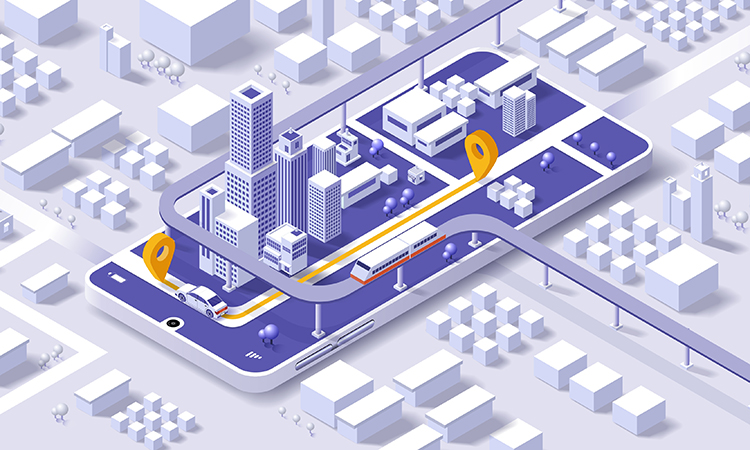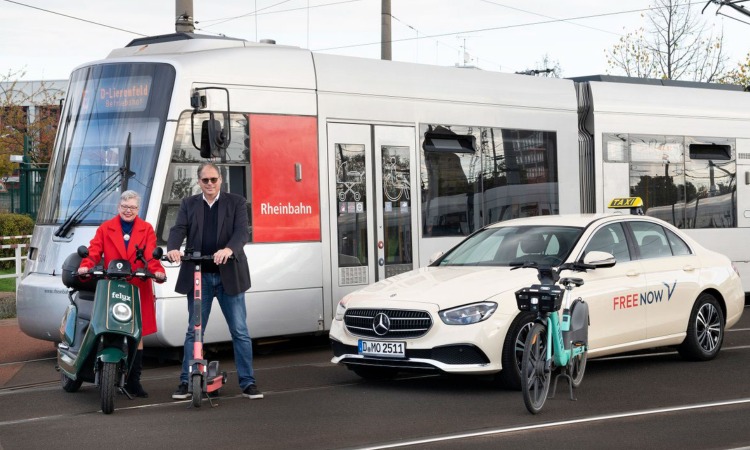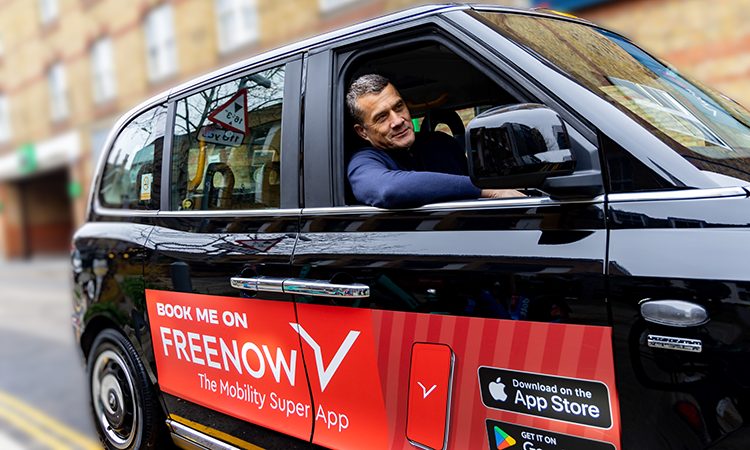Driving MaaS for sustainable and efficient transport in cities
- Like
- Digg
- Del
- Tumblr
- VKontakte
- Buffer
- Love This
- Odnoklassniki
- Meneame
- Blogger
- Amazon
- Yahoo Mail
- Gmail
- AOL
- Newsvine
- HackerNews
- Evernote
- MySpace
- Mail.ru
- Viadeo
- Line
- Comments
- Yummly
- SMS
- Viber
- Telegram
- Subscribe
- Skype
- Facebook Messenger
- Kakao
- LiveJournal
- Yammer
- Edgar
- Fintel
- Mix
- Instapaper
- Copy Link
Posted: 21 March 2024 | Mariusz Zabrocki - FREENOW | No comments yet
Mobility-as-a-Service continues to evolve rapidly, revolutionising the way that people navigate urban environments. By integrating various transportation services into a single platform, MaaS enables the offering of seamless, convenient and often cost-effective mobility solutions. For Intelligent Transport, Mariusz Zabrocki, UK General Manager at FREENOW, shares his thoughts on how MaaS can be vital in supporting more sustainable transport choices; what role it can play in improving the accessibility of the industry; and the importance of collaboration between public and private transport.


Over the past two decades, the transport industry has transformed thanks to technological advancements. One such advancement is Mobility-as-a-Service (MaaS), which enables customers to pay for and plan trips across multiple modes of transport, including public transport, taxi or micro-mobility options – all on one single centralised platform. This gives users greater and more sustainable choices for traveling from A to B.
With more young people demanding better, more efficient, comfortable and sustainable travel options, it is no surprise that we have seen significant shifts in how people prefer to commute. According to a FREENOW survey, almost half of the young people aged 18-35 mentioned that they could live without owning their own car by using other forms of transport, such as taxis or e-bikes in combination with public transport. However, the challenge of integrating public and private transport options in a way that makes travel convenient, efficient, comfortable and accessible for all remains.
Driving towards sustainability
The evolution of MaaS is evident, especially with growing environmental concerns among consumers, political leaders and businesses. According to FREENOW, almost all (91%) Europeans consider sustainable transport to be key to their city, with 62% agreeing that sustainable travel behaviour should be strongly incentivised. In particular, there is a specific focus on reducing private car usage in cities where other shared vehicles are available to use.
As more people actively try to reduce their private car usage, cities must provide better access to high-quality, shared transport options that prioritise sustainability. On average, a shared vehicle is used up to six times more frequently than a private vehicle and, in a purely shared-mobility city, fewer than 10% of existing vehicles would be needed to get around. Therefore, collaboration with MaaS platforms that aggregate a wide range of shared transport options is key to creating thriving and greener cities.
It is important that MaaS platforms stay committed to helping cities thrive through clean, diverse and accessible transport. At the moment, over 70% of FREENOW Black Cab trips in the UK are done with zero-emission capable vehicles, and FREENOW has the largest fleet of sustainable vehicles (over 12,000), including e-bikes and e-scooters. This provides a wide range of options that encourage the reduction of private car usage in the city centre.


Credit: FREE NOW
Improving accessibility for all
MaaS plays an important role in not only enhancing the overall travel experience by giving users the convenience and flexibility that they need, but also supporting vulnerable people in accessing a wide range of transport services. For example, people with disabilities or vulnerable groups heavily rely on services such as wheelchair-friendly Black Cabs. According to government research released by the Department for Transport (DfT), disabled travellers rely on taxis 55% more than people without disabilities.
This issue of accessibility is not limited to the UK. FREENOW research shows that 60% of European citizens want a single app that integrates all transport options to streamline their travel experience. Real-time data sharing, seamless integration with public transport networks and compatibility across regions are pivotal in enhancing user experience and driving adoption. As a result, having all transport options in one place will make travelling even more user-friendly and accessible for people with disabilities, enhancing the efficiency of their journeys and protecting their peace of mind.
Steering success through collaboration
One of the challenges for MaaS currently is the lack of collaboration between public and private transport. For example, not all tickets are digital, and each operator has a different technical setup which makes it difficult to build a compelling offer at scale.
Therefore, we need more cities and regions to offer public transport tickets to platforms like FREENOW in order to create better integrated, user-centric solutions. Even if a city has a public MaaS system, to reap the most benefits for users, it shouldn’t limit public transport distribution to this public MaaS but look to open this with as many platforms as possible. With 69% of passengers in the UK expecting to use multi-mobility apps more, collaboration must happen soon to support the increased demand.
Furthermore, for greater collaboration and innovation in the sector, the UK Government must continue supporting MaaS through investment and funding. It is also important that MaaS platforms are considered in public policies to make transport easier and faster. For example, the recent extension of the Plug-in Taxi Grant until April 2025, offering £6,000 per electric taxi, will help to boost the uptake for EV taxis, though the challenge remains with VAT on EV charging remaining unfairly higher for professional drivers.


Credit: FREENOW
Corporate travel spending
The use of private and company cars has also seen a steady decline. In fact, a survey conducted by Wade Macdonald revealed that only 10% of employees value company cars, and FREENOW predicts that the popularity of company cars will drastically decrease over the coming years, dropping from 90% in 2022 as the most popular travel benefit to just 37% in three years’ time.
With more businesses having sustainability goals to meet, it is important that they promote multi-mobility and shared transport options among employees while considering their requirements in terms of speed, reliability and comfort.
With a growing portion of the workforce embracing remote work, companies are increasingly considering having a mobility budget. This gives employees a monthly allowance they can use to book a variety of transport options, such as trains and EV taxis. By doing this, companies can establish a win-win scenario in which employees benefit from having access to multiple and flexible sustainable transport options while, at the same time, meeting the company’s sustainability objectives.
Leveraging fleet cars for more sustainable and efficient travel
Fleets can scale and adopt the latest and greener electric vehicle (EV) technologies and they offer superior sustainability optimisation for two main reasons:
- Taxi vehicles maintain constant movement, eliminating the occupation of parking spaces
- They synchronise efficiently with other modes of transport by reducing privately owned cars on the road and overall congestion, especially public transit, maximising effectiveness.
This is especially crucial as cities and councils strive to optimise urban space by regulating traffic to allocate more room for pedestrians and cyclists. They also enable optimised car usage compared to private vehicles, which remain parked 96% of the time on average in the UK, according to Reinventing Parking.
The road to an efficient and sustainable transport system
Beyond providing personalised and efficient transport solutions, MaaS holds the key to unlocking environmental and economic benefits for society. While public transport plays an important role, increasingly, people are willing to combine multiple forms of transport to suit their needs, lifestyle, and even sustainability preferences. For example, at FREENOW, 70% of users use all the services on the platform.
The transport revolution is underway and success can’t be achieved in isolation. The data, insight and knowledge acquired by large MaaS platforms when it comes to understanding user behaviours, patterns and preferences is invaluable. Therefore cities that focus on a collaborative approach with existing MaaS platforms will be the ones supporting their communities with a transport system that not only caters to their needs but is fairer and more sustainable.


Mariusz has vast experience in the mobility sector; prior to FREENOW, he was General Manager at ride-hailing company, Kapten, the first major competitor to Uber in London. Since then, he has led the successful merger between Kapten and FREENOW, and managed the integration of micro-mobility options into the FREENOW app.
Mariusz has also successfully steered the company from record lows caused by the global pandemic, which severely affected the ride-hailing industry, to record highs. FREENOW’s UK business is outperforming pre-pandemic records and is currently the number one taxi app in London and the licenced taxi market leader across Europe.
Related topics
Alternative Power, Micro-mobility, Mobility Services, Modal shift, Multimodality, Passenger Accessibility, Passenger Experience, Public Transport, Sustainable Urban Transport, Ticketing & Payments, Traffic Management, Transport Governance & Policy
Related modes
Bikes & Scooters, Taxi
Related countries
United Kingdom
Related organisations
Department for Transport (DfT), FREENOW, Reinventing Parking, UK Government, Wade Macdonald
Related people
Mariusz Zabrocki








